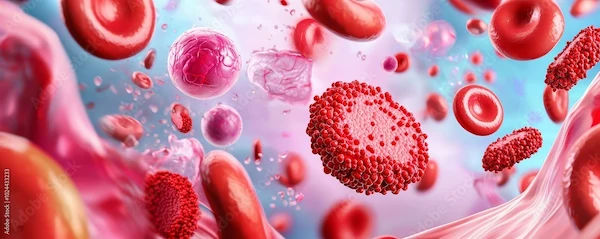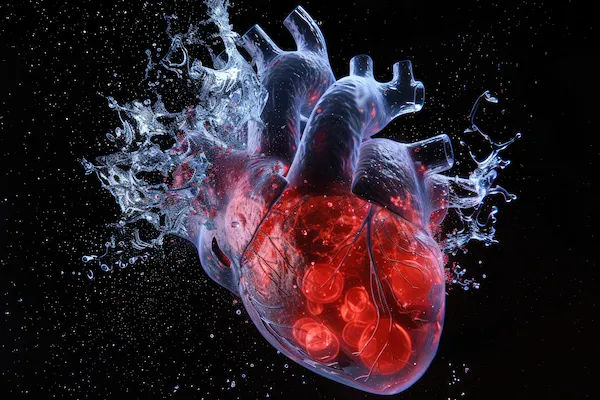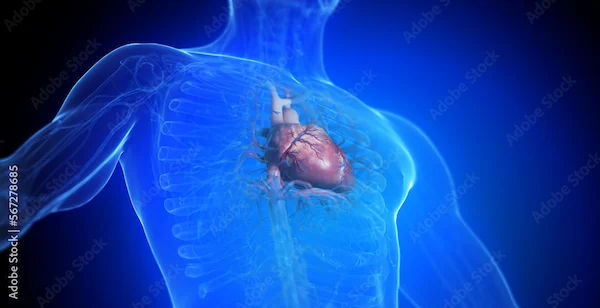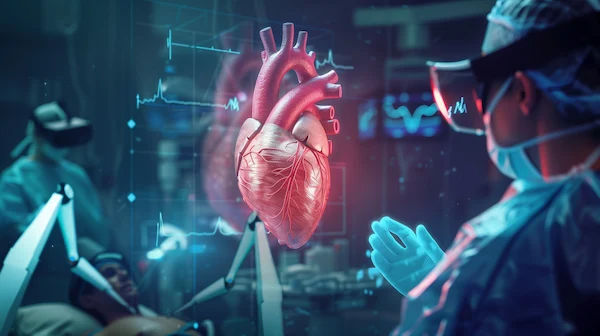- female
- 60 Years
- 22/01/2025
Hey, my mom just had a 2D echo test and stress test done. The echo test came back normal with an LVFH of 60. However, during the stress test, she only managed to stay on the treadmill for 2 minutes because she's not very active and is a bit overweight. Our doctor has now recommended an angiography since the stress test wasnt normal. Do you think we should be concerned and go forward with the angiography?
Answered by 1 Apollo Doctors
Based on the information provided, since the stress test was not normal and your mom has limitations in physical activity due to being overweight, it would be advisable to follow your doctor's recommendation for an angiography. This will help in further evaluating the condition of her heart and determining the best course of action. In the meantime, it's important for your mom to continue following a healthy lifestyle, including regular physical activity and a balanced diet.
Dr. Anshul Suggests...
Consult a Cardiologist
Answered 04/07/2025
0
0

Ask Apollo
AI powered Health Chatbot
-
Understanding the 2D Echo Results
- A normal 2D echocardiogram with an LVFH of 60 suggests good heart function.
-
Significance of the Stress Test Performance
- Limited treadmill time can be due to inactivity and overweight status, potentially affecting test results.
-
Reason for Angiography Recommendation
- Angiography may be suggested to check for coronary artery disease or blockages, even with normal echo results.
-
Assessing the Need for Angiography
- Consider symptoms, risk factors, and overall health before proceeding.
-
Next Steps and Patient Care
- Discuss concerns with the cardiologist, explore alternative tests, and consider lifestyle changes.
-
Emotional Support and Reassurance
- Stay informed and involved in care decisions; angiography is a diagnostic tool to ensure heart health.
Recommended next steps
Consult a Cardiologist or Take a Apollo Stress Impact Management Test
Answered 20/08/2025
0
0

More Cardiology Health Queries
View allI'm trying to figure out what natural ingredients I should include in my daily diet to help control my high cholesterol. My lipid profile isn't looking great, and I'm currently on 10 mg of Zivast. I've also started exercising and making changes to my diet. What can I do diet-wise to improve my situation?
To help control your high cholesterol naturally, in addition to taking Zivast (atorvastatin) 10 mg and exercising, you can include several beneficial ingredients in your daily diet. These include: 1. Soluble Fiber: Found in oats, barley, beans, lentils, fruits (such as apples, pears, and berries), and vegetables. Soluble fiber helps reduce the absorption of cholesterol in your bloodstream. 2. Healthy Fats: Include sources of unsaturated fats like avocados, nuts, seeds, and olive oil. Replace saturated fats found in red meat and full-fat dairy with these healthier options. 3. Omega-3 Fatty Acids: Found in fatty fish like salmon, mackerel, and sardines, as well as in flaxseeds and chia seeds. Omega-3s can help lower triglycerides and improve heart health. 4. Plant Sterols and Stanols: Naturally found in small amounts in fruits, vegetables, nuts, seeds, cereals, legumes, and vegetable oils. Some fortified foods also contain added plant sterols. 5. Garlic: Has been shown to have cholesterol-lowering properties. Incorporate fresh garlic into your meals. 6. Green Tea: Contains antioxidants that may help lower LDL cholesterol levels. Maintaining a balanced diet with these ingredients, along with your medication and exercise, will support your efforts to manage your cholesterol
Answered by 1 Apollo Doctors
I'm really concerned about my mom. She's got diabetes and high BP, and her recent echocardiography test had some results that are making me anxious. Her exercise duration was 9.51 minutes, and her max heart rate hit 152 bpm, which is 88% of the target heart rate of 172 bpm. Her max BP was 16680 mmHg, and she reached a max workload of 11.14 METS. The stress test came back positive for RMI. The doctors are suggesting an angiography test. I'm really worried. Is everything okay, or should I be more concerned?
Based on the results of the stress test showing a positive for reversible myocardial ischemia (RMI) and the recommendation for an angiography test, it indicates that there may be reduced blood flow to the heart muscle during physical activity. This could be a sign of underlying coronary artery disease. To address this issue, your mother may need to undergo angiography to further evaluate the blood flow in her coronary arteries. Depending on the findings of the angiography, the doctors will be able to determine the best course of treatment, which may include medications such as aspirin, statins, and beta-blockers to manage her condition and reduce the risk of complications. It is important to follow the advice of the medical professionals and proceed with the recommended tests and treatments to ensure the best possible outcome for your mother's heart health.
Answered by 1 Apollo Doctors
I've been having some issues lately. I'm a 33-year-old guy, and when I'm just resting, my heart sometimes races up to 120-130 beats per minute. I had an ECG, and they said it's sinus tachycardia, but my echocardiogram came back normal. Even though tests seem alright, I still get this fluttery feeling when my pulse is high. What could this be? Can you give me some advice on what might be going on?
Based on your symptoms of palpitations and feeling flurried when your pulse is high, it sounds like you may be experiencing symptoms of anxiety or panic attacks. To help manage these symptoms, I recommend taking Propranolol (Inderal) 10-40mg as needed to help control your heart rate and reduce the feelings of flurriness. Additionally, practicing relaxation techniques such as deep breathing exercises or mindfulness meditation may also be beneficial in managing your symptoms.
Answered by 1 Apollo Doctors
Disclaimer: Answers on Apollo 247 are not intended to replace your doctor advice. Always seek help of a professional doctor in case of an medical emergency or ailment.





